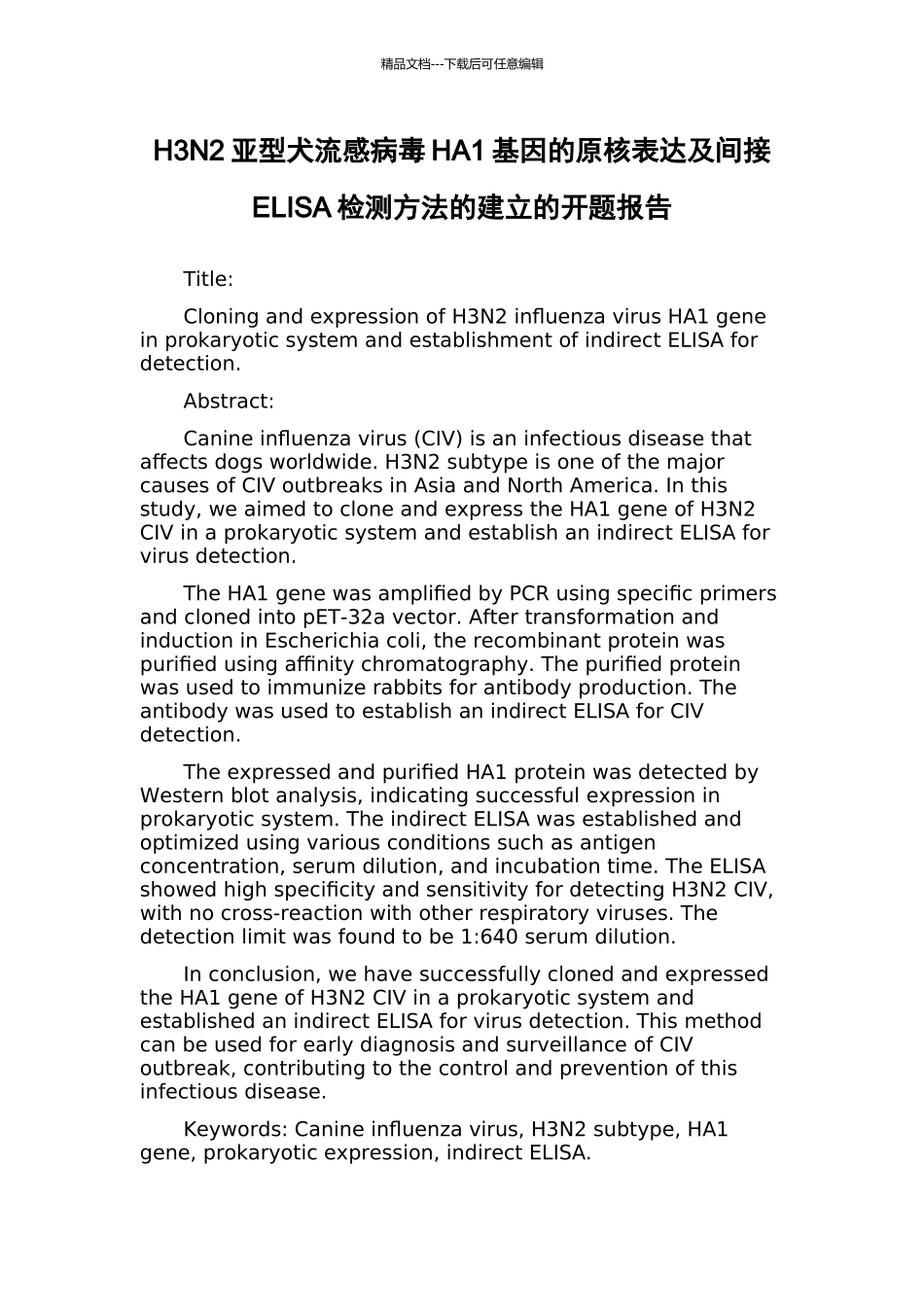精品文档---下载后可任意编辑H3N2 亚型犬流感病毒 HA1 基因的原核表达及间接ELISA 检测方法的建立的开题报告Title:Cloning and expression of H3N2 influenza virus HA1 gene in prokaryotic system and establishment of indirect ELISA for detection.Abstract:Canine influenza virus (CIV) is an infectious disease that affects dogs worldwide. H3N2 subtype is one of the major causes of CIV outbreaks in Asia and North America. In this study, we aimed to clone and express the HA1 gene of H3N2 CIV in a prokaryotic system and establish an indirect ELISA for virus detection.The HA1 gene was amplified by PCR using specific primers and cloned into pET-32a vector. After transformation and induction in Escherichia coli, the recombinant protein was purified using affinity chromatography. The purified protein was used to immunize rabbits for antibody production. The antibody was used to establish an indirect ELISA for CIV detection.The expressed and purified HA1 protein was detected by Western blot analysis, indicating successful expression in prokaryotic system. The indirect ELISA was established and optimized using various conditions such as antigen concentration, serum dilution, and incubation time. The ELISA showed high specificity and sensitivity for detecting H3N2 CIV, with no cross-reaction with other respiratory viruses. The detection limit was found to be 1:640 serum dilution.In conclusion, we have successfully cloned and expressed the HA1 gene of H3N2 CIV in a prokaryotic system and established an indirect ELISA for virus detection. This method can be used for early diagnosis and surveillance of CIV outbreak, contributing to the control and prevention of this infectious disease.Keywords: Canine influenza virus, H3N2 subtype, HA1 gene, prokaryotic expression, indirect ELISA.
